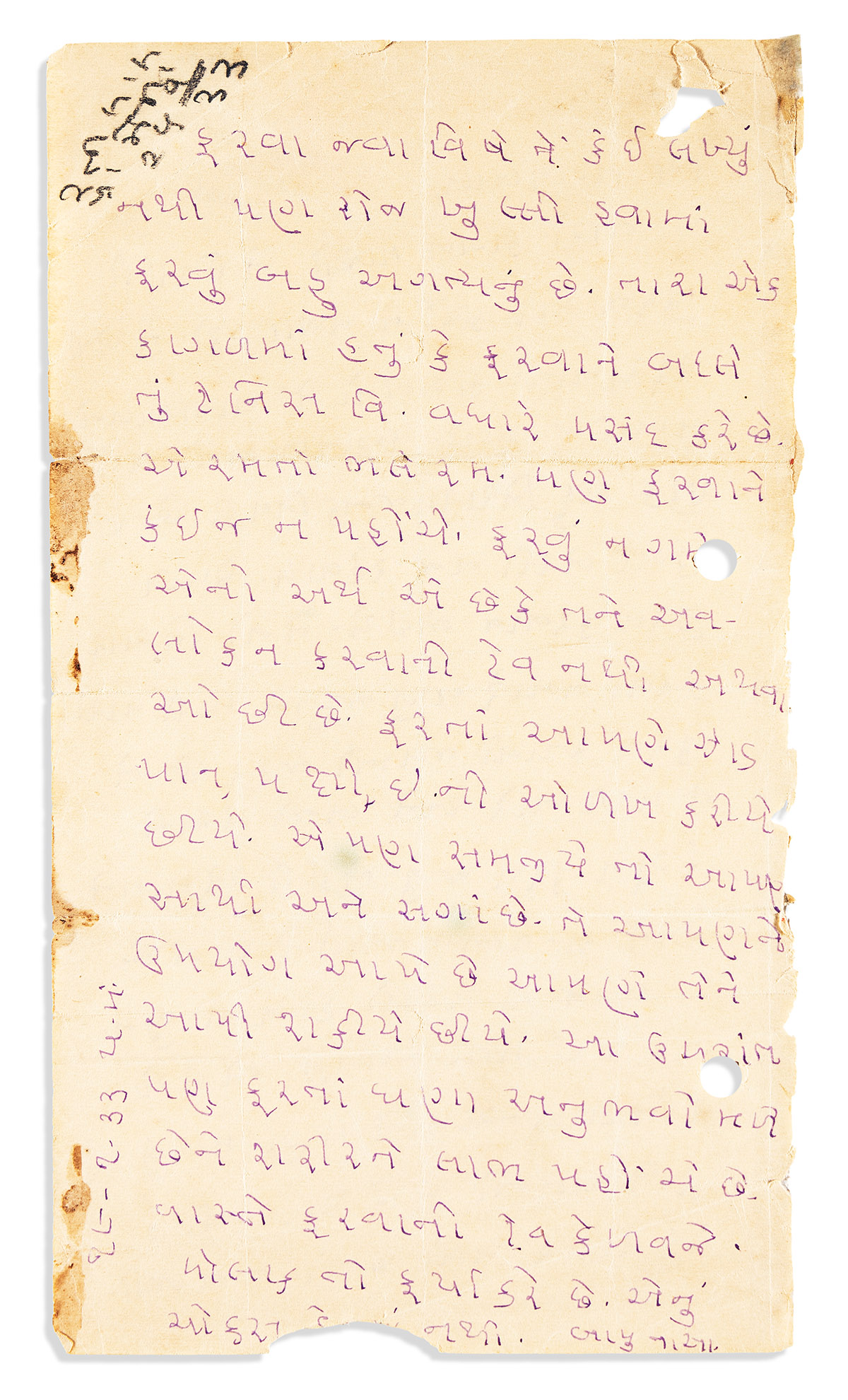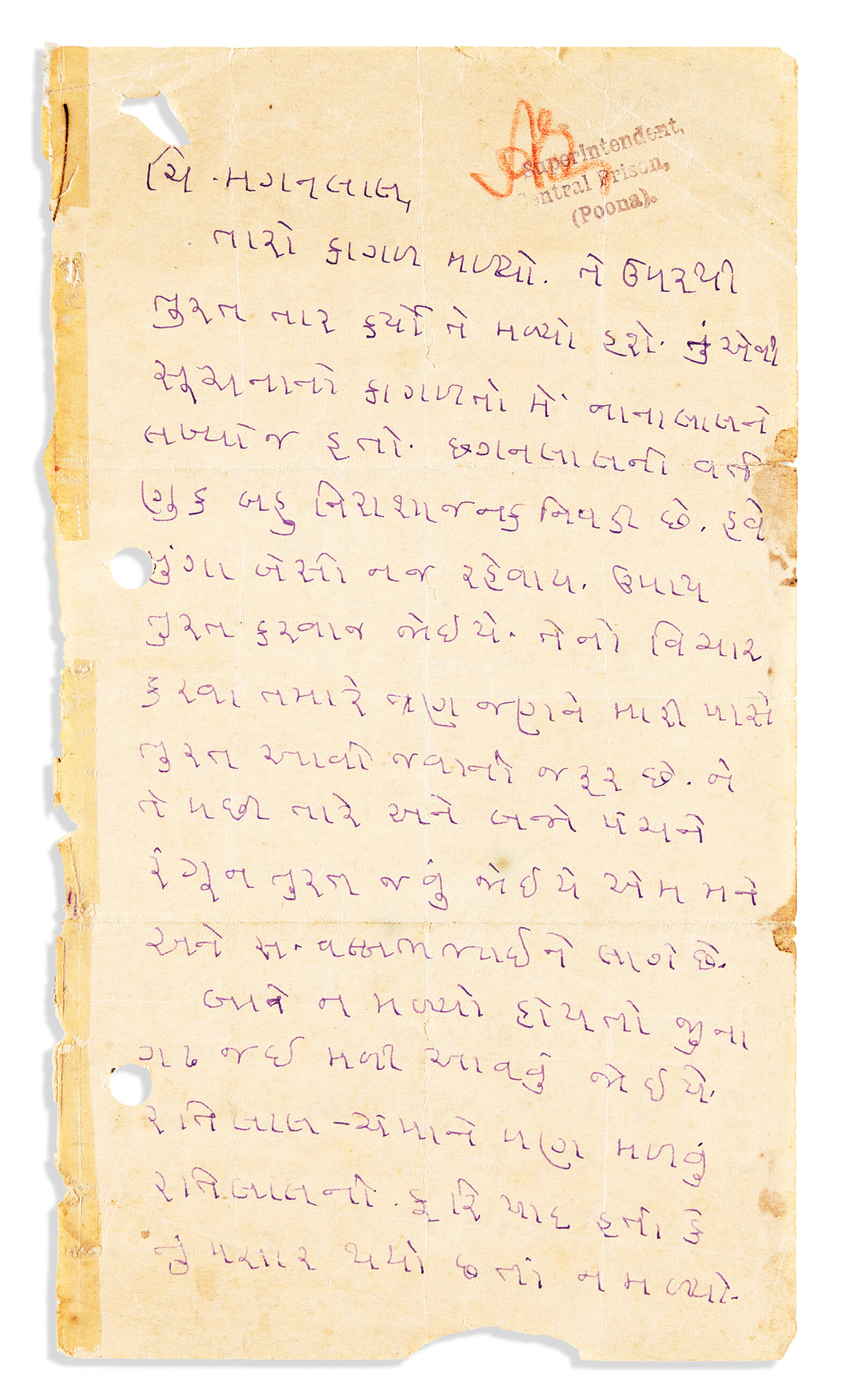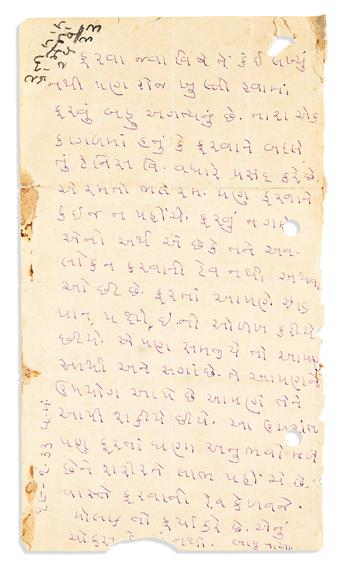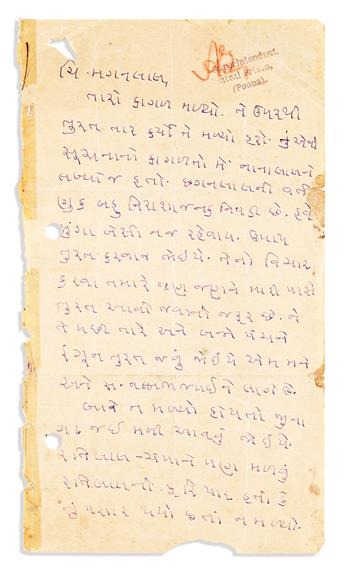Sale 2641 - Lot 35
Unsold
Estimate: $ 8,000 - $ 12,000
PRAISING BENEFITS OF WALKING ALONE IN NATURE--WHILE IMPRISONED GANDHI, MOHANDAS K. Autograph Letter Signed, "Bapu's blessings," to Maganlal Mehta, in Gujarati, remarking that the behavior of his brother is unacceptable, suggesting that he and his siblings meet Gandhi at the jail to discuss the matter, noting that Sardar Vallabhbhai agrees [Vallabhbhai Jhaverbhai Patel, later Deputy Prime Minister of India], encouraging him to spend some time with his mother, discussing the benefits of walking alone, and remarking that Henry Polak [activist Henry Salomon Leon Polak] walks alone frequently. 2 pages, 8vo, written on recto and verso of a single sheet; punch holes in left margin with minor loss to text, left edge reinforced with cello tape, few small scattered stains, folds, ink stamp at upper right ("Superintendent, Central Prison, (Poona)," in English), signed by jail official in red pencil over ink stamp, 3 lines written at upper left verso in another hand. [Pune], 19 January 1933
Additional Details
". . . [T]o walk in open air and spend time with nature is of great importance. I recall . . . you had mentioned that, instead of going for a walk you prefer to play Tennis . . . . You can play as much as you want to, but nothing comes close to the blissfulness of a brisk walk. If you do not like to walk alone, it means you do not have the habit of introspection . . . . By roaming around we become familiar and can learn from trees, flowers and birds. If we try to understand deeply, even they can be seen to be our companions and lifelong friends. They give us so many things that are essential to life, abundantly and selflessly. Can we not give them even a fraction of it in return? Moreover, by roaming around you gain many experiences, and it is beneficial for the body in many ways. Hence, I urge you to cultivate the habit of walking daily. . . ."
In early January 1932, Gandhi was arrested in Mumbai for having organized a civil disobedience campaign in opposition to the Viceroy of India's rejection of the Indian National Congress; he was brought to the Yerawada Jail in Pune, where he remained until his release in May of the following year. Gandhi was permitted some correspondence including the present letter to the son of his recently-deceased friend Pranjivan Mehta (1864-1932).
Provenance: From the family of Sarla Mehta, granddaughter of Pranjivan Mehta.
In early January 1932, Gandhi was arrested in Mumbai for having organized a civil disobedience campaign in opposition to the Viceroy of India's rejection of the Indian National Congress; he was brought to the Yerawada Jail in Pune, where he remained until his release in May of the following year. Gandhi was permitted some correspondence including the present letter to the son of his recently-deceased friend Pranjivan Mehta (1864-1932).
Provenance: From the family of Sarla Mehta, granddaughter of Pranjivan Mehta.
Exhibition Hours
Exhibition Hours
Aliquam vulputate ornare congue. Vestibulum maximus, libero in placerat faucibus, risus nisl molestie massa, ut maximus metus lectus vel lorem.






